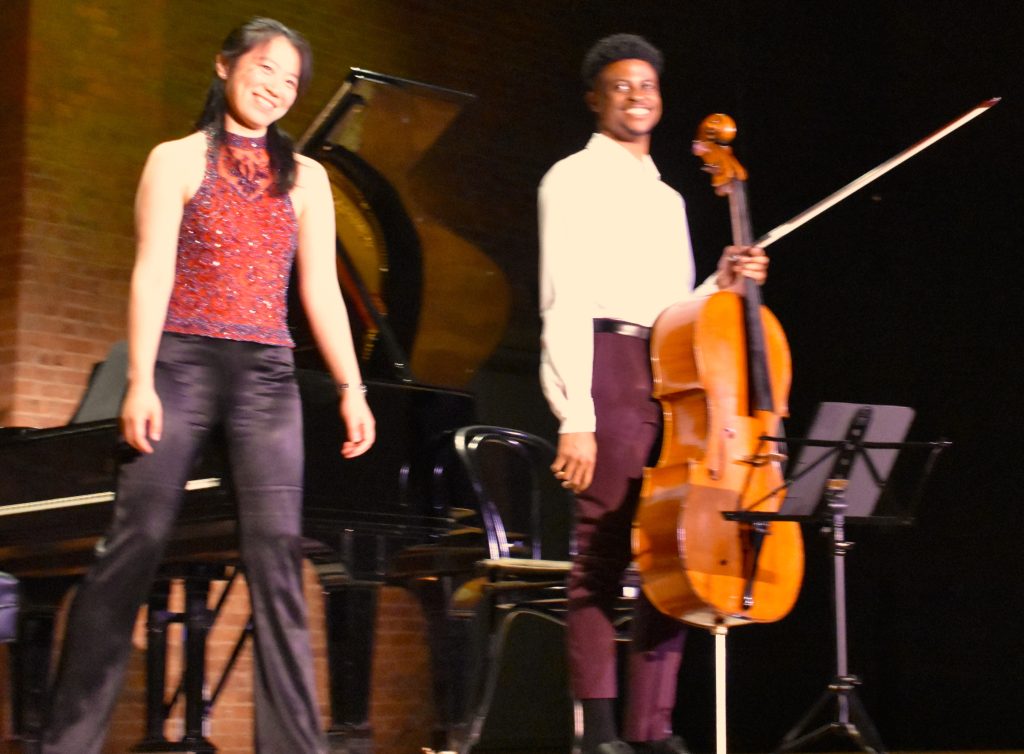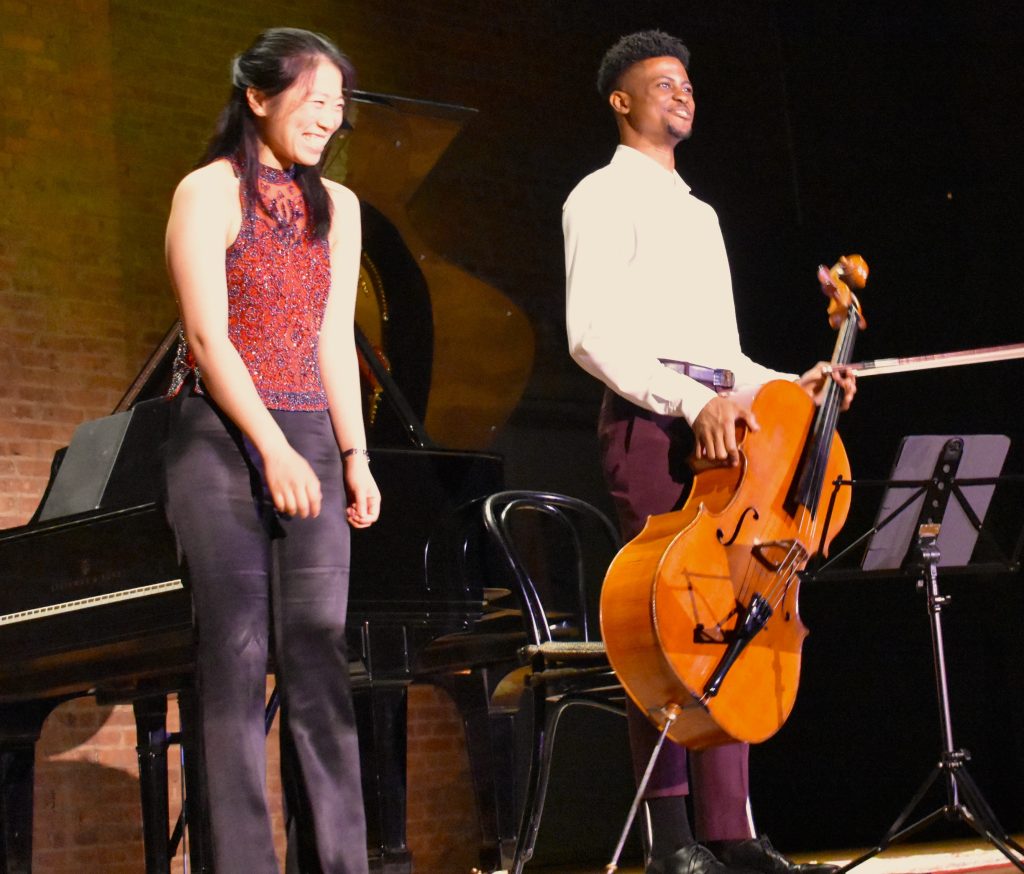
by Kevin T McEneaney
In a program titled Cello Americana! young cellist Sterling Elliot and pianist Sophia Zhou performed works by four noted American composers. They opened with Four Sketches, Op. 15: In Autumn (1892) by Amy Beach. This short, delightful piano piece meditates on leaves falling amid gusts of autumn wind. Sterling Elliot added a cello accompaniment for the third of the four sketches titled Dreaming. The cheerful runs of chromatic chords on the piano, sudden phrase shifts, and seductive arioso cadences by Zhou offered breathless excitement, as Elliot on cello delivered a dreamlike contrapuntal use of attractive, dissonant gravitas. I believe this charming work was inspired by The Seasons by Fanny Mendelssohn, a twelve-month sequence which I have long admired. The striking modernity of Beach’s short composition embellishes the random scattering of leaves with contagious effervescence amid autumnal resonance.
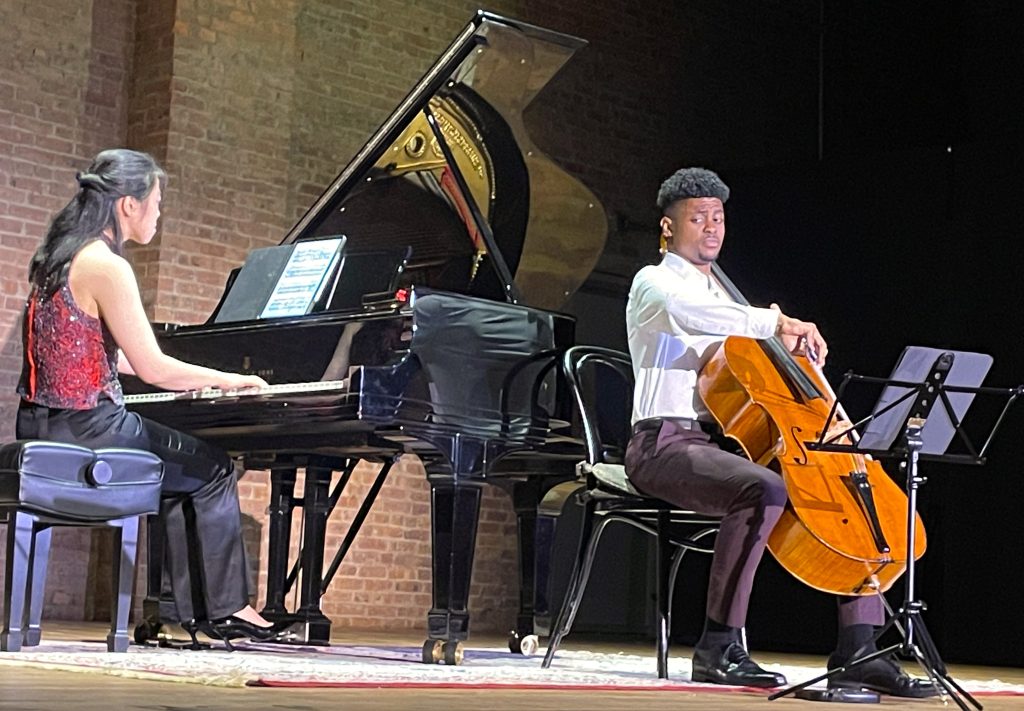
In Romance for Violin and Piano, Op. 23 (1893) by Amy Beach, Elliot adapted the cello role from the violin script. Dedicated to her noted violin friend Maud Powell (1867-1944), who was undoubtedly the greatest American violinist of her era (she admired Beach’s output), this work conjured a redolent ambiance of romanticism that freighted ardent emotional texture as single notes soared with deep emotional expansion. Each note from Elliot’s cello sounded like a new creation, evoking memories of romance and sublime love.
Cello Sonata by Kevin Day (2019) had been performed by Sterling Elliot on April 16, 2025, at the Concertgebouw in Amsterdam. This unpredictable work surges into various moods with intense lyricism and propulsive rhythms that intersect with fond and precocious childhood memories as piano and cello deliver a mother-father duet, cradled by wandering lines of music that expire. The third-movement lilting Giocoso with jubilant rhythms invoked memorable, impulsive joy. The edgy interplay of piano and cello was thrilling.
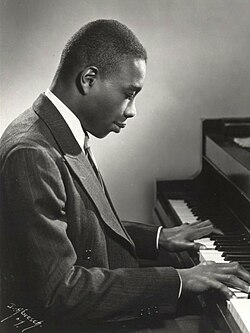
Cello Sonata (1957) by George Walker (1922-2018), the first African American to win the Pulitzer Prize for Music (1996), provided a multidimensional work with intricate rhythmic counterpoint interplay between cello and piano. Elliot Had met Walker more than once, and they spoke about this composition that Elliot admired. The lyrical opening portrays the lyrical wonder of love. Fragments of blues echo in the background of the second movement, which descends into the chaos and pathos of unrequited or lost love. The angular third movement surges into a surprising and fiery reversal as the cello dominates in the lower register like a bass: a rapid, frantic dialogue as liquid piano runs by Zhou ensued. The theme is love regained or achieved with an incredible joy that pierces the heart of anyone who hears this wondrous reversal! Throughout this piece, I sat entranced on the edge of my seat. Walker’s innovative music remains startlingly original since he blends and bends various styles of music to intoxicating effect.
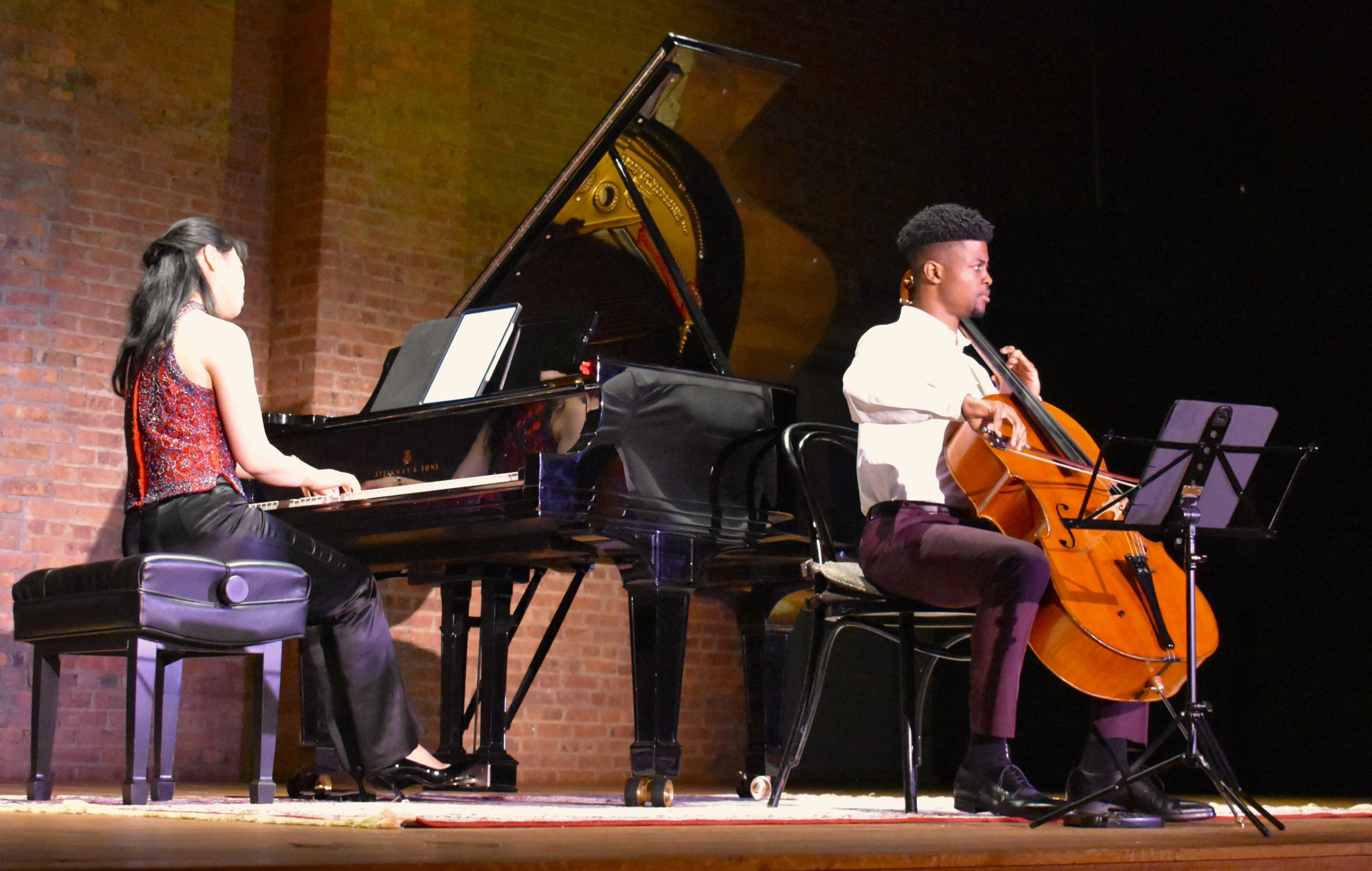
Mother and Child (1943) by William Grant Still (1895-1978), one of my favorite underplayed American classical composers who wrote nearly two hundred remarkable works, was inspired by Sargent Johnson’s “Mother & Child,” yet that was not the only burgeoning influence at work in his orchestral Suite for Violin and Piano. Still’s mother was deeply disappointed when Still departed Little Rock, Arkansas, to attend one of the three colleges in the United States that admitted African Americans to study at Wilberforce College in northern Ohio. (She thought music to be the road to poverty.)
This noted composition offers tribute to the memory of his mother, here adapted for cello and piano (usually performed by an orchestra). This remains one of the most ardent and deeply emotional compositions ever composed. Elliot’s stripped-down version offers a more intimate emotional tone that is more powerful and transcendent than any orchestral version in this eight-minute rendering, where the piano and cello enter a memory dialogue shimmering with poignant recollections. I was overwhelmed by the poignant tenderness and warmth of the work. This was a minimalist performance with maximalist impact. I left the auditorium glowing with memories of my mother, the piano representing the mother, and the cello being the voice of the composer. Zhou fingered the keys with great delicacy and dignity as the cello affirmed the mutual tender warmth of their bond.
This concert will long be treasured in my memory….
The next morning, Elliot departed from JFK airport to play with the BBC orchestra in the Cello Concerto by Antonín Dvořák.
